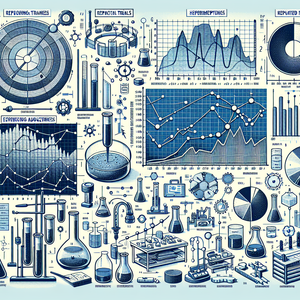From Whaling to Finance: The Evolution of Connecticut's Economy

In the early 1800s, Connecticut's economy was predominantly reliant on the whaling industry, which was a cornerstone of the state's economic activity. Towns such as New London and Mystic blossomed into bustling ports, with whaling ships embarking on extensive voyages across the Atlantic in search of lucrative whale oil. This industry not only provided direct employment for sailors and shipbuilders but also stimulated local economies through ancillary services like food production and trade-related activities. At its peak, Connecticut was home to some of the most successful whaling companies in the United States, contributing significantly to the state's economic output. For instance, in 1846, New London was reported to have a fleet of 71 whaling ships, which underscores the scale of this industry. However, by the mid-19th century, the whaling industry began to decline due to overfishing, the advent of petroleum as an alternative to whale oil, and shifting consumer preferences. As Connecticut's whaling towns faced economic adversity, the need for alternative avenues of growth became apparent.
The Rise of Manufacturing
As the whaling industry waned, Connecticut adeptly pivoted towards manufacturing, particularly during the Industrial Revolution. The state became renowned for its production of firearms, textiles, and machinery. Cities like Hartford and New Haven emerged as manufacturing powerhouses, attracting workers from rural areas and immigrants seeking better economic prospects. Technological innovations played a pivotal role in this transition. The introduction of the assembly line and advancements in machine tools allowed manufacturers to produce goods more efficiently and at a larger scale. For example, the establishment of Colt's Manufacturing Company in Hartford in 1855 showcased how the state capitalized on its manufacturing potential, producing firearms that were in high demand during the Civil War and beyond. Additionally, Connecticut's commitment to education and technical training ensured a skilled workforce, which was essential for maintaining competitiveness in the manufacturing sector.
The Shift to Finance and Insurance
By the late 19th and early 20th centuries, Connecticut's economy began to evolve once more, this time gravitating towards finance and insurance. Hartford emerged as a leading player in this sector, ultimately earning the title "Insurance Capital of the World." Several factors contributed to this transformation, including the state’s strategic location along the I-91 corridor, a well-established transportation network, and a favorable regulatory environment that encouraged the establishment and growth of financial institutions. Connecticut’s insurance companies, notably Aetna and The Hartford, played instrumental roles in shaping the industry, providing a diverse range of products that catered to the growing needs of American consumers and businesses. The concentration of these firms not only generated significant employment opportunities but also attracted talent and investment, further solidifying Hartford's status in the financial realm. By the 1950s, Connecticut was home to over 60 insurance companies, making it a hub of financial innovation and security.
Economic Resilience and Adaptability
The transitions from whaling to manufacturing and then to finance illustrate Connecticut's remarkable resilience and adaptability. The ability to pivot in the face of economic challenges is a testament to the state's entrepreneurial spirit and willingness to embrace change. This adaptability has been crucial in navigating economic downturns and ensuring that Connecticut remains relevant in an increasingly competitive global landscape. Moreover, the state's commitment to education and workforce development has been instrumental in fostering innovation and attracting new industries. Institutions such as the University of Connecticut and local technical colleges have produced a steady stream of graduates equipped with the skills necessary for a modern economy. This focus on education has not only prepared the workforce for existing job markets but has also encouraged the growth of emerging sectors in technology and health care.
Connecticut's economic evolution from whaling to finance is a compelling narrative of resilience, innovation, and adaptability. The state's capacity to harness its resources, embrace change, and cultivate a skilled workforce has enabled it to thrive in an increasingly competitive landscape. As we look to the future, the lessons learned from Connecticut's journey serve as a powerful reminder of the importance of flexibility and foresight in navigating the complexities of the economy. Whether facing the challenges of the past or the opportunities of tomorrow, Connecticut's legacy continues to inspire as a model for economic transformation, demonstrating that with strategic planning and a commitment to education, a state can successfully reinvent itself in the face of change.
Financial Analyst
Aetna, The Hartford, UBS
Core Responsibilities
Analyze financial data to support investment decisions and strategic planning for companies in the finance sector.
Prepare reports and forecasts based on research and market trends to advise on potential risks and opportunities.
Required Skills
Strong proficiency in financial modeling and data analysis tools (Excel, SQL).
Excellent communication skills for presenting findings to stakeholders.
Insurance Underwriter
Aetna, The Hartford, Travelers
Core Responsibilities
Evaluate insurance applications and determine coverage terms and pricing based on risk assessment.
Collaborate with agents and brokers to ensure that policies meet both client needs and company standards.
Required Skills
Knowledge of underwriting principles and risk assessment methodologies.
Attention to detail and strong analytical skills, along with a background in finance or economics.
Economic Research Analyst
State government agencies, financial institutions
Core Responsibilities
Conduct research on economic trends and provide insights to inform policy-making and investment strategies.
Analyze data from various sources, including government reports and market studies, to forecast economic conditions.
Required Skills
Proficiency in statistical analysis software (e.g., Stata, R) and strong quantitative skills.
Ability to communicate complex economic concepts to non-specialist audiences.
Manufacturing Operations Manager
Colt's Manufacturing Company, UTC Aerospace Systems
Core Responsibilities
Oversee daily manufacturing operations to ensure efficiency and productivity while adhering to safety standards.
Implement process improvements and lean manufacturing techniques to enhance operational performance.
Required Skills
Strong leadership skills and experience in project management, with a background in engineering or manufacturing.
Familiarity with quality control practices and tools like Six Sigma.
Business Development Manager in Technology
Tech startups, established IT firms
Core Responsibilities
Identify and pursue new business opportunities in emerging tech sectors to drive growth and revenue.
Develop relationships with key stakeholders and present value propositions to potential clients.
Required Skills
Strong understanding of technology trends and market dynamics, with a background in business or technology.
Excellent negotiation and interpersonal skills, along with strategic thinking capabilities.


